
Browse our fun-packed, helpful plant-based articles, and delve deeper into this healthy, sustainable lifestyle!


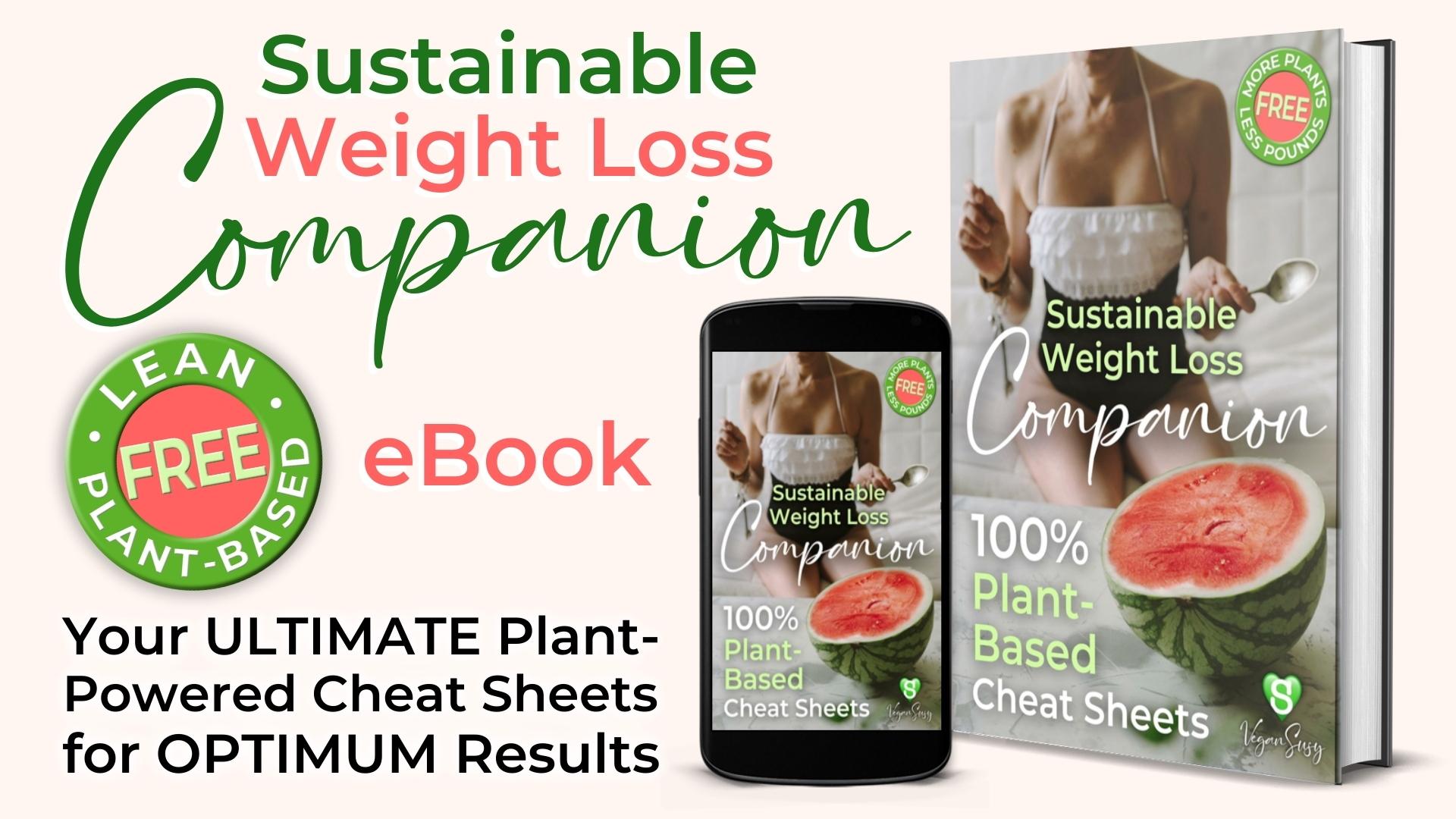
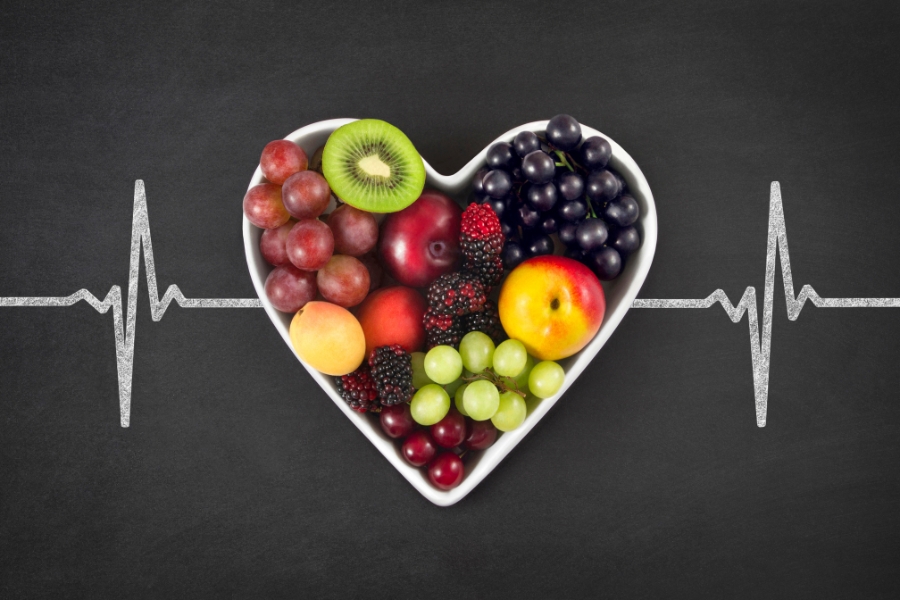
The Link Between Plant-Based Diets and Heart Health: What the Research Says
Plant-Based Lifestyle Tips For Women
Author: Plant-Based Susy
Heart problems affect people of all genders, races, and ethnicities all over the world, and diet plays a massive role in this reality. Around 695,000 people die in the United States from heart disease every year. That makes heart disease responsible for 1 in every five deaths in the U.S. and the leading cause of death in this part of the world. These diseases cause a quarter of deaths in the U.K., coming out to more than 170,000 deaths yearly. That's an average of 480 deaths each day.
Heart health is a significant cause of death and long-term issues, but heart disease is relatively preventable with the proper routine. 90% of cardiovascular diseases are preventable through action and education, such as eating better, working out regularly, and ditching cigarettes.
It should come as no surprise that following a vegan or plant-based diet carries many benefits, including weight loss, toning up, lowering the risk of diabetes, lowering blood sugar levels, improving kidney function, and more. This diet can reduce the risk of cardiovascular diseases.
Following this lifestyle has many benefits, but is a vegan diet good for your heart? Combining exercise and a heart-healthy plant-based diet can make all the difference. Diets high in fat, salt, and sugar can increase the risk of high cholesterol, obesity, diabetes, and hypertension, while a plant-based diet can balance and protect you from these issues.
Many studies have found a link between a lower risk of cardiovascular problems and diets full of nutritionally dense plant-based foods, including fruits, vegetables, nuts, and whole grains. Plant-based foods tend to be low in saturated fats, provide an excellent source of healthy fats, and are associated with a lower risk of heart disease. Let's explore the connection between veganism and heart health.

Table of Contents:
Behaviours & Conditions That Can Increase the Risk of Heart Disease
While there are some risks of heart disease out of your control, like age, family history, and certain health conditions, there are factors you can change to avoid heart issues in the future.
According to the Centers for Disease Control and Prevention, nearly half of all Americans have at least 1 of 3 key risk factors for heart disease:
High blood pressure
High cholesterol
Smoking
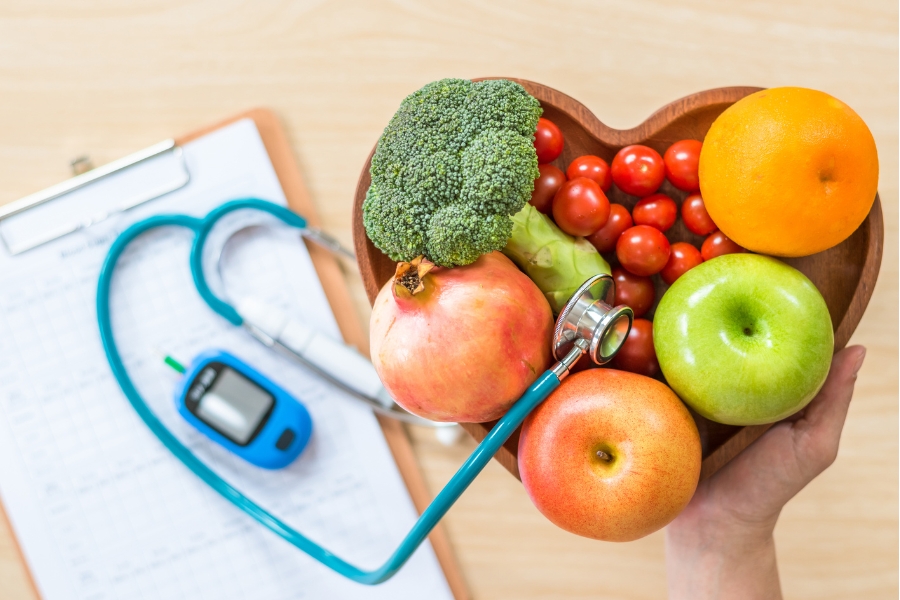
High blood pressure
High blood pressure is a medical condition that occurs when the pressure of blood in your blood vessels and arteries is too high. It is a big risk for heart disease. The idea of having high blood pressure is pretty scary because it tends to have no symptoms and can only be detected if you measure your blood pressure. This can affect major organs, including the heart and brain.
On the bright side, the power to lower your blood pressure might just be in your hands. In many cases, you can control high blood pressure through lifestyle changes without having to turn to medication. Losing weight, exercising often, ditching smoking, limiting alcohol, getting better sleep, lowering stress, and reducing salt can all help. A huge factor is eating a healthy diet high in fruits, vegetables, and whole grains.
Unhealthy cholesterol levels
Cholesterol is a natural component found in the blood, and its job is to support functions within the body. Cholesterol is not necessarily bad, but it is when it causes plaque to build up in the arteries. This is a significant risk for heart attacks, heart diseases, and strokes.
Our bodies naturally create enough cholesterol to meet our needs, but we tend to get more through our diets. Too much cholesterol can build up the walls in the arteries, decreasing blood flow to the heart.
The two main types of blood cholesterol are low-density lipoprotein and high-density lipoprotein. LDL is considered harmful as it can lead to plaque buildup, while HDL is considered good as it can protect against heart disease.
Thankfully, something as simple as your foods can control cholesterol levels. Eating heart-healthy foods makes a big difference in improving heart health. Reducing saturated fats, cutting out trans fats, and eating more foods full of omega-3 fatty acids will help. It's also beneficial to add more soluble fibre sources like oatmeal, apples, pears, and kidney beans because this can reduce cholesterol absorption into the bloodstream.
The same lifestyle changes that help control blood pressure also apply. These include ditching smoking, getting more exercise, losing weight, and drinking less alcohol.
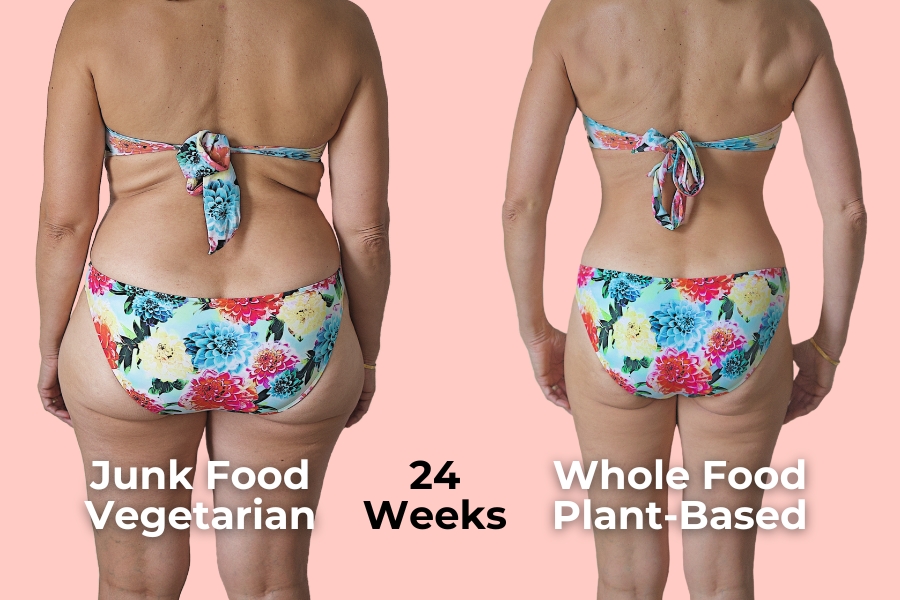
Obesity, diabetes, and other health concerns
While you can't control every risk factor associated with heart disease, there are still some things to consider.
Obesity can increase the risk of heart and circulatory diseases. Being overweight can lead to the buildup of fatty material in the arteries. As the British Heart Foundation explains, "If the arteries that carry blood to your heart get damaged and clogged, it can lead to a heart attack. If this happens in the arteries that carry blood to your brain, it can lead to a stroke or vascular dementia." Obesity not only increases the risk of coronary artery disease but also the chance of developing diabetes.
People with diabetes are more likely to have issues with high blood pressure and high cholesterol and are at a higher risk of heart disease. High blood sugar levels can harm blood vessels, and this damage can ultimately lead to heart disease. Lifestyle changes can prevent or delay type 2 diabetes. These changes include losing or maintaining weight, increasing physical activity, and eating a healthy diet.
Vegan heart health research has proven the link between plant-based eating and well-being
There is a clear connection between a vegan diet and cardiovascular health. Many studies, including vegan heart health research, confirm the importance of implementing this diet to care for your heart.
According to the National Library of Medicine, "Healthful plant-based diets should be recommended as an environmentally sustainable dietary option for improved cardiovascular health." This is true for people of all ages.
People don't need strict vegetarian or vegan diets to see these benefits, but incorporating more fruits and vegetables is the key. Studies have found that it is still possible to see these benefits while consuming some animal products, but it's best to eat mostly natural foods and foods that are not highly processed. Following a plant-based diet is the best route.
According to the 2019 guidelines on nutrition from the American College of Cardiology and American Heart Association, a diet packed full of vegetables, fruits, legumes, nuts, and whole grains is recommended to decrease Atherosclerotic Cardiovascular Disease.
As WebMD explains, "If you're eating mostly or only fruits, vegetables, nuts, beans, whole grains, and meat substitutes like soy, you may cut your odds of getting heart disease, high cholesterol, high blood pressure, and type 2 diabetes, compared to a diet that includes a lot more meat."
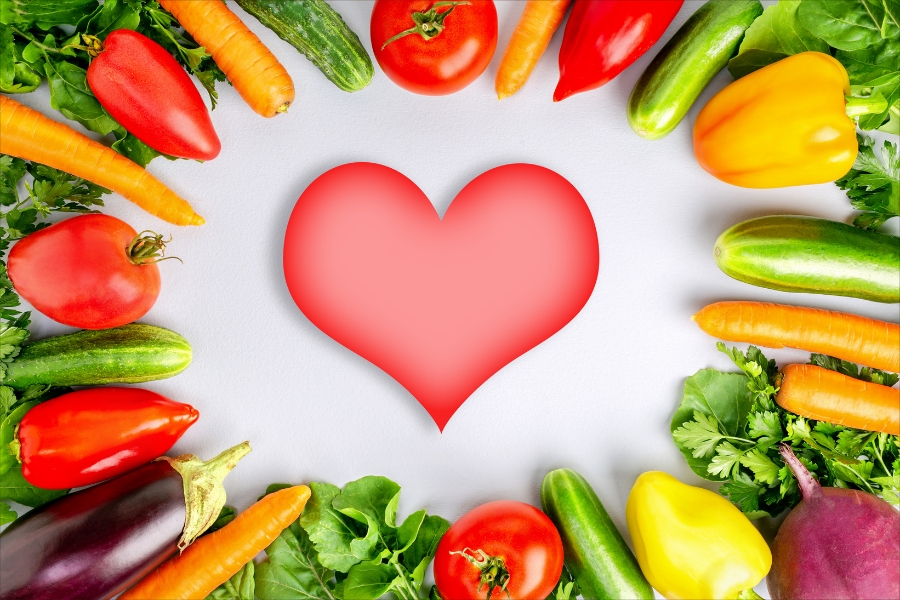
How does a plant-based diet improve heart health?
Lowering your intake of animal products or following a strict plant-based diet are both excellent tools for promoting a healthy heart. Plant-based diets can reduce your risk of heart disease, heart attack, stroke, heart failure, and more.
While the link between veganism and heart health is highly researched and understood to be accurate, how exactly does this work?
Potassium, heart health, and plant-based sources
Potassium is an important part of the heartbeat, which is clearly necessary for heart health. This beneficial nutrient has been found to help lower blood pressure and is a key part of muscle, nerve, and kidney function.
According to WebMD, potassium won't prevent or treat heart disease, but it's still vital to taking care of your heart. The recommendation from the U.S. Department of Agriculture is 4,700 milligrams every day.
Consulting with a doctor is the best way to determine how much potassium you need, and remember that it's possible to overindulge in this nutrient. Potassium is found in many fruits, vegetables, and other plant foods.
The best sources of potassium are fruits and vegetables like:
Avocados
Bananas
Strawberries
Oranges
Dried Apricots
Raisins
Dates
Spinach
Peas
Following a plant-based diet improves cholesterol levels
Cholesterol is a fatty substance found in the blood, and it can increase the chance of scary things like heart attacks and strokes. High cholesterol is also a risk factor for heart disease. While you might enjoy the taste of animal-based foods, unfortunately, cholesterol is highly concentrated in them.
Following a plant-based diet is an effective way to control cholesterol levels. Replacing animal fat and protein with plant-based sources lowers LDL cholesterol, which is considered the "bad" kind. When LDL cholesterol builds up in the arteries, it can lead to plaque forming and disrupting blood flow, ultimately leading to a heart attack or stroke.
Physicians Committee laid out a plant-powered prescription to help with cholesterol, including:
To meet your fibre goal, aim for at least ½ cup of beans each day
Avoid processed foods
Avoid trans fats
Replace animal proteins with plant-based proteins
Limit daily fat to 10% of calories

Plant-based protein and heart health
There has always been a fear of not getting enough protein with a plant-based diet, but it's really not as hard as we are made to believe. Plants are loaded with protein and the myth that people can only get enough of it while consuming animal products was busted a long time ago.
Plant-based protein sources include tofu, tempeh, quinoa, nutritional yeast, and plenty more tasty bites.
Consuming enough protein is an essential part of taking care of your body. Protein is part of most bodily functions. It helps your muscles recover from workouts and helps repair and build bones, tissues, skin, blood, and cartilage. Protein helps the bloodstream move oxygen throughout the body and can give you the energy you need to thrive throughout the day. Beyond this, protein is a part of heart health.
A recent study states, "A diet sourcing protein primarily from plants reduces the risk of cardiovascular mortality." This might be thanks to the higher concentration of glutamic acid in plant proteins, which is linked to lower blood pressure. L-glutamine is believed to play an essential role in cardiovascular wellness.
Polyphenols reduce the risk of diabetes, obesity, and hypertension
Studies find polyphenols can fight against oxidative-related diseases, including cardiovascular disease and atherosclerosis-related ischemic heart disease and stroke. Excellent sources of polyphenols include raw fruits and vegetables.
These tasty plant-based sources include:
Cocoa
Mushrooms
Onions
Apples
Spinach
Blueberries
Adding polyphenols to your diet can help reduce the risk of diabetes, obesity, and hypertension.
The most heart-healthy plant-based foods
While some animal-based products can be okay for the heart, you must stick to non-fat and low-fat dairy options for this to be true.
The best heart-healthy diets contain fruits, vegetables, whole grains, and healthy plant-based proteins.
Fruits and vegetables
Studies find that fruits and vegetables are associated with reduced risk of cardiovascular diseases. A big part of this is due to the antioxidants found in these foods. It is best to incorporate plenty of leafy greens and fresh fruits into your diet.
The simplest way to get suitable fruits and vegetables for overall health is to eat the rainbow – try and get as many colours into your diet as possible each day. Different colours of fruits and vegetables carry other health benefits.
White fruits and vegetables like mushrooms, bananas, and onions help control cholesterol levels and are suitable for the heart.
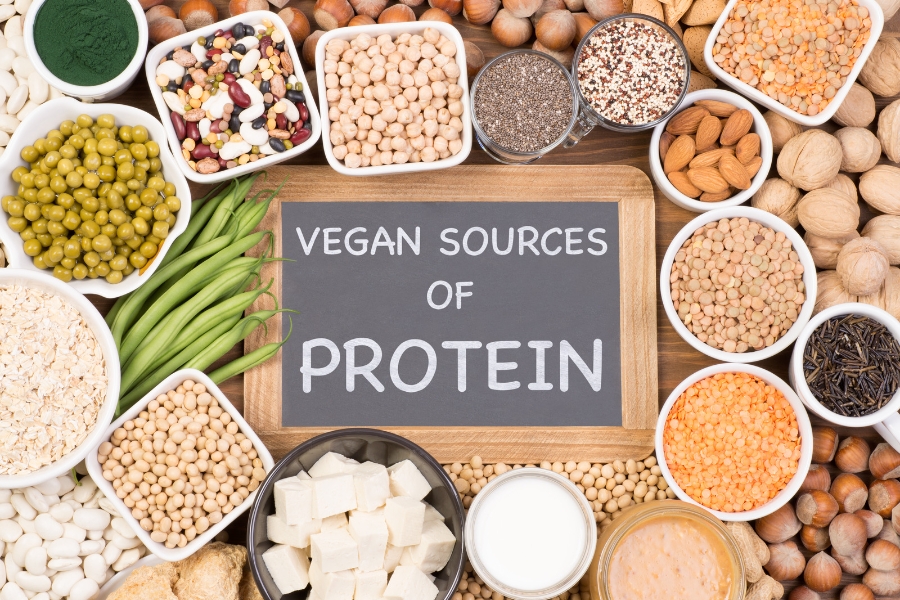
Plant-based proteins
While many animal-based proteins are harmful to heart health, plant-based proteins like legumes and nuts are associated with a lower risk of cardiovascular disease.
Legumes, which are also high in antioxidants, and nuts, which are also high in fibre, are both connected to this low risk.
Excellent plant-based protein sources include:
Edamame
Tofu
Tempeh
Seitan
Lentils
Pinto Beans
Chickpeas
Peanuts
Almonds
Spirulina
Quinoa
Hemp Seeds
Nutritional Yeast
Green Peas
Wild Rice
Oats
Vegetables
Whole grains
Opt for whole grains instead of refined grains to lower your risk of coronary heart disease. This rich fibre source helps maintain a healthy cholesterol level and supports a healthy heart.
Delicious choices include:
Whole-grain bread
Bagels
Cereals
Pasta
Couscous
Quinoa
Oats
Brown & Wild Rice
To support heart health, there are some foods to avoid, many of which are naturally cut out when switching to a plant-based diet.
The American Heart Association recommends avoiding:
Fatty meats
Processed meats
Tropical oils
Processed foods
High-fat dairy products
Added sugars
High sodium
Alcohol
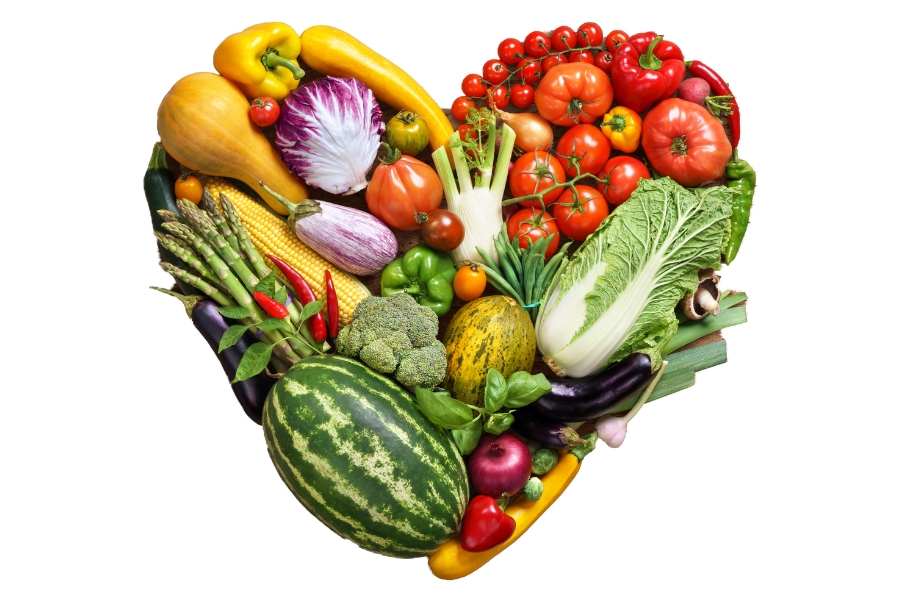
Frequently Asked Questions
Do cardiologists recommend a plant-based diet for heart health?
While there's nothing every expert can agree on, many cardiologists recommend a plant-based diet to those worried about their heart health. This is true for people who want to reduce their risk of heart disease and improve their heart health.
The American College of Cardiology and the American Heart Association recommend a plant-based diet to improve cardiovascular health.
Is a vegan diet good for your heart?
One of the many benefits of following a vegan diet is how it cares for your heart. A plant-based diet helps control many factors associated with heart health, including lowering LDL cholesterol levels and managing weight.
What are the benefits of a plant-based diet?
Following a plant-based diet has been linked to countless benefits. Plant-based diets help maintain a healthy weight, increase fibre, lower the risk of cancer, lower the risk of developing coronary heart disease, reduce inflammation, increase longevity, boost the immune system, and more. Changing your lifestyle this way is one of the easiest ways to stay on top of your health.
What behaviours increase the risk of heart disease?
Many lifestyle choices can increase the chance of developing heart disease. These include drinking too much alcohol, smoking, not working out, and eating a poor diet. Pairing a heart-healthy plant-based diet with movement is essential to preventing heart disease.
How long does it take for a plant-based diet to improve heart health
How quickly a plant-based diet improves heart health can vary depending on factors such as the severity of the damage. According to the Physicians Committee and studies, a plant-based diet paired with healthier lifestyle choices has been shown to reduce chest pain within weeks and improve blood flow to the heart within a month.
After a year of following a plant-based diet, people have noticed reopened arteries that were once severely blocked.
The Bottom Line
Heart disease is the leading cause of death, and it can affect anyone. While avoiding every risk factor associated with heart disease is impossible, some aspects are still in your control. Specific lifestyle changes, including adopting a plant-based diet, can make a huge difference in preventing these issues.
There is a connection between heart health and the food on your plate. Beyond avoiding harmful animal-based products, a plant-based diet ensures you consume plenty of heart-healthy nutrients. A heart-healthy diet includes a variety of fruits, vegetables, whole grains, and healthy fats.
Foods that are bad for your heart include:
Red meat
Bacon
Processed meats
High-fat dairy products
Ultra-processed foods (UPFs)
If you're concerned about your heart health and are looking for a simple and cost-effective solution, a plant-based diet might be the thing. Incorporating plenty of minimally processed whole grains, vegetables, fruits, and healthy plant-based protein sources holds the key to a heart-healthy transformation.
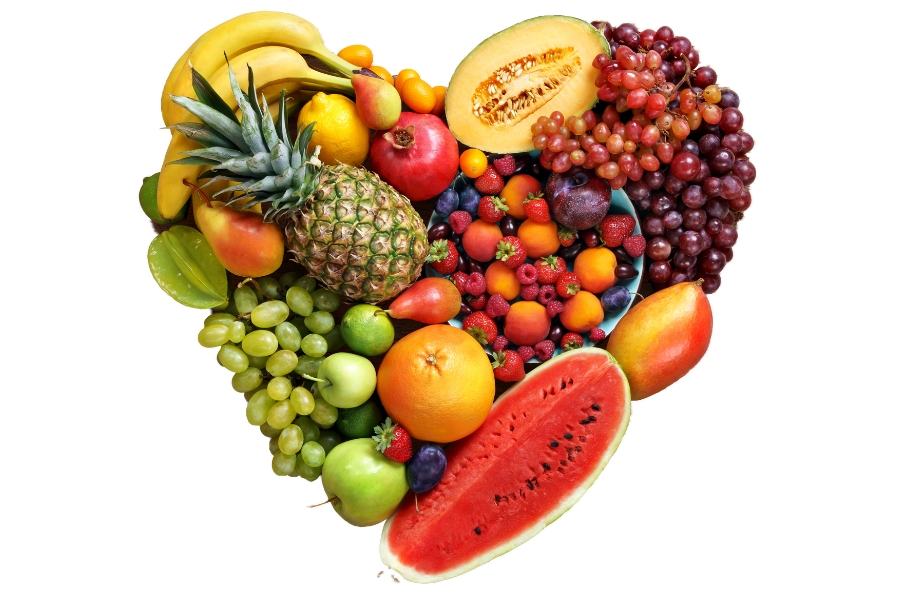
💚 "Happy Plant-Based Eating & Exercising!" 💚

Plant-Based Susy
Plant-Based Nutrition Professional & Weight Loss Coach
Empower Yourself: Embark on a Delicious Fat Loss Adventure

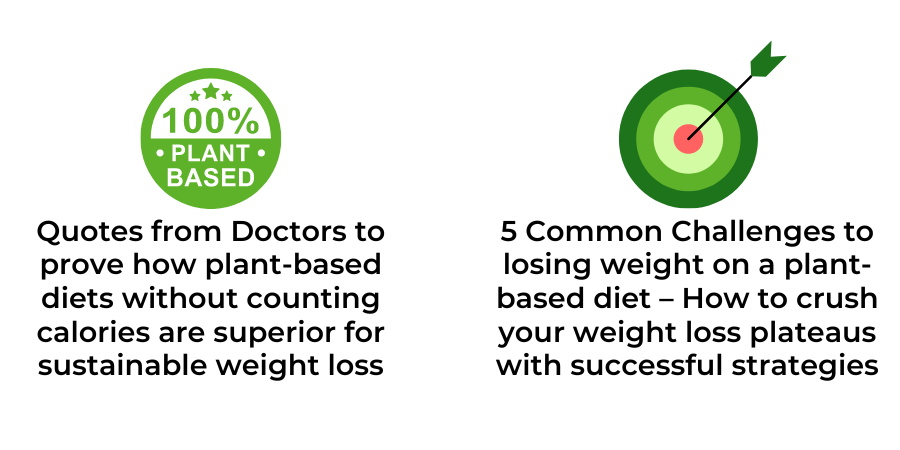
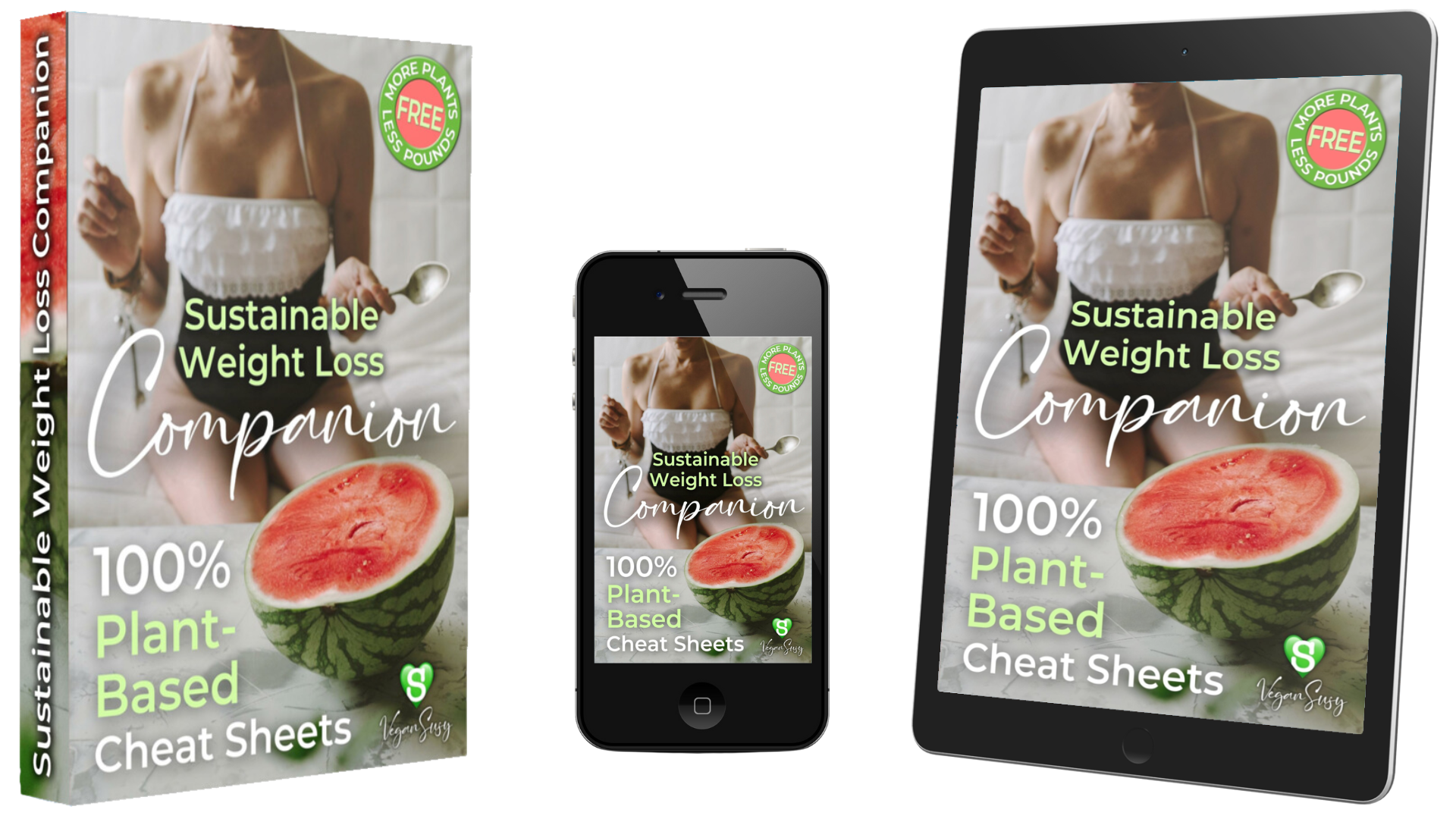
🍉 Get Ready to Jump Start Your Fitness Goals AND DISCOVER A HEALTHIER YOU!
🍉 Let's Make Your Fat Loss & Optimum Health Journey a Delicious Success Story!
🍉 Get The FREE Sustainable Weight Loss Companion eBook and CHEAT SHEETS!
More Free Resources
Unlock Your Transformation Today!
© 2025 VeganSusy Ltd. All Rights Reserved


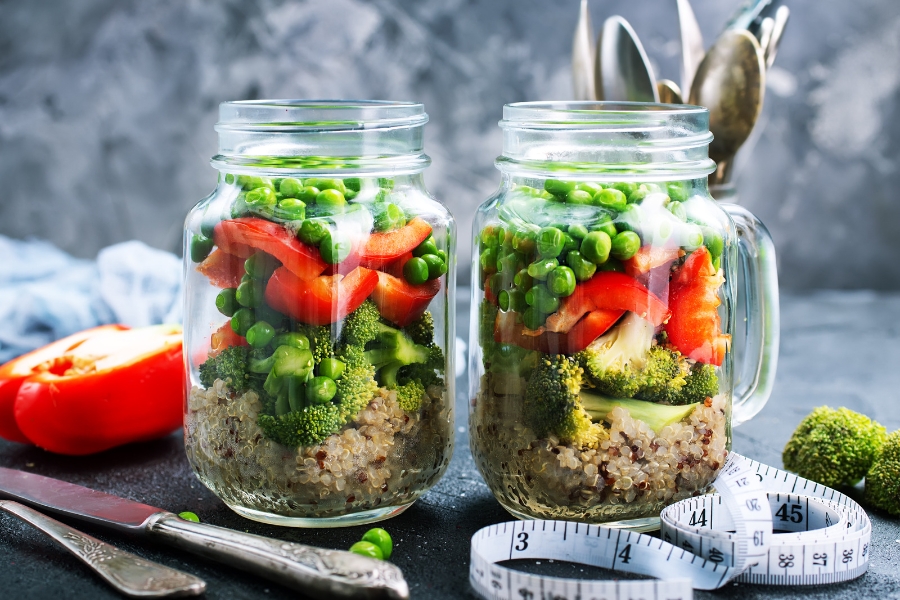
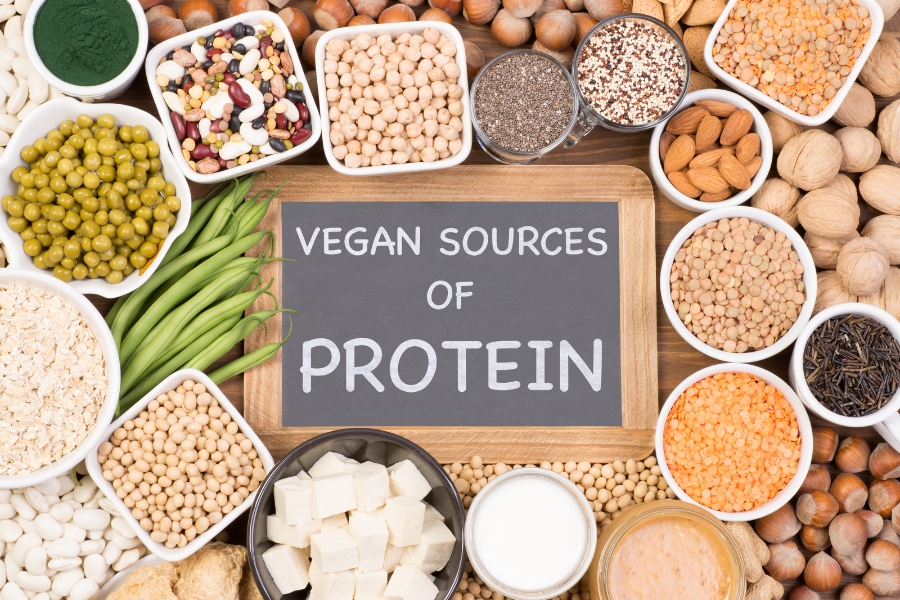

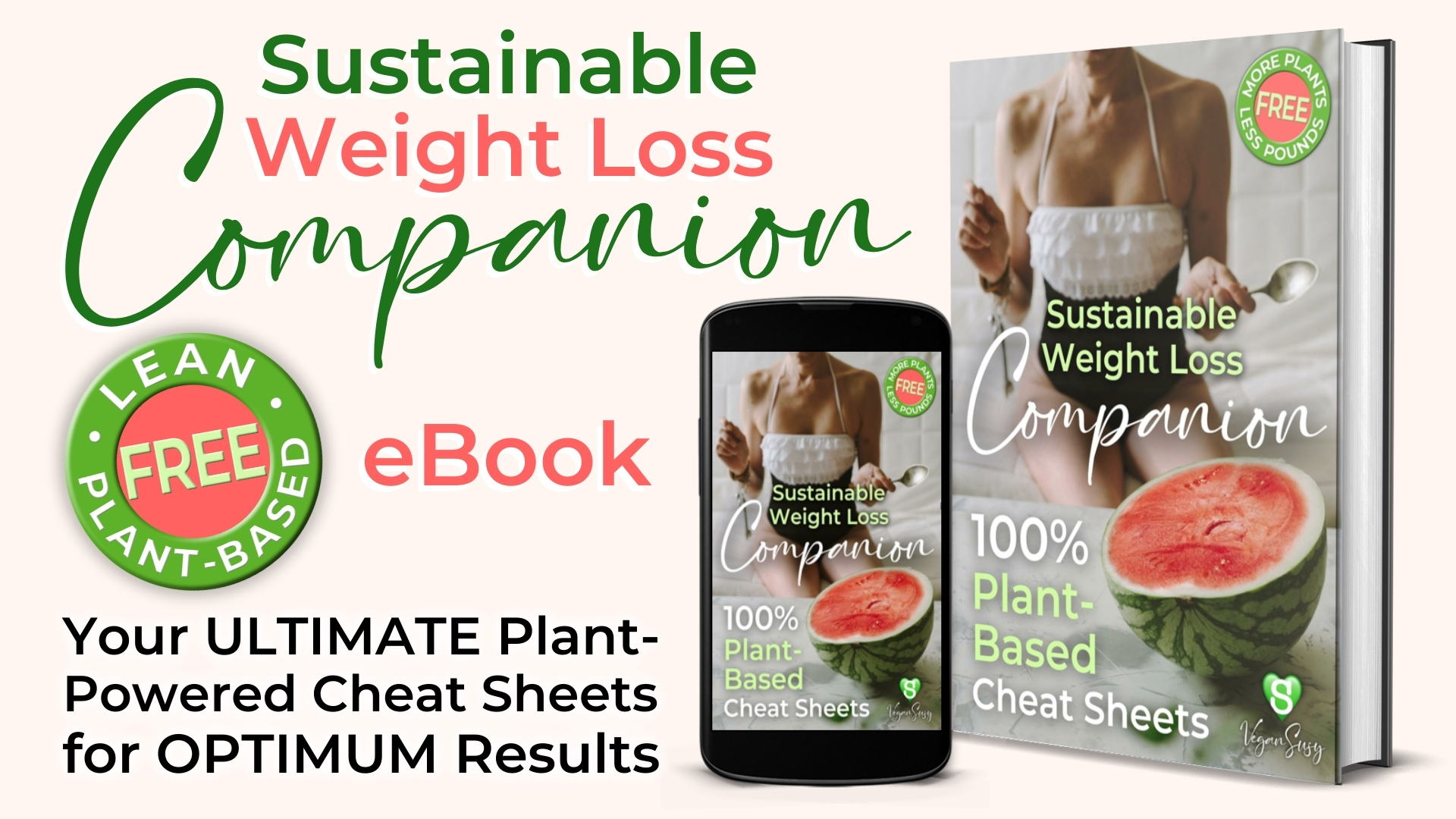





Facebook
Instagram
Youtube
Pinterest